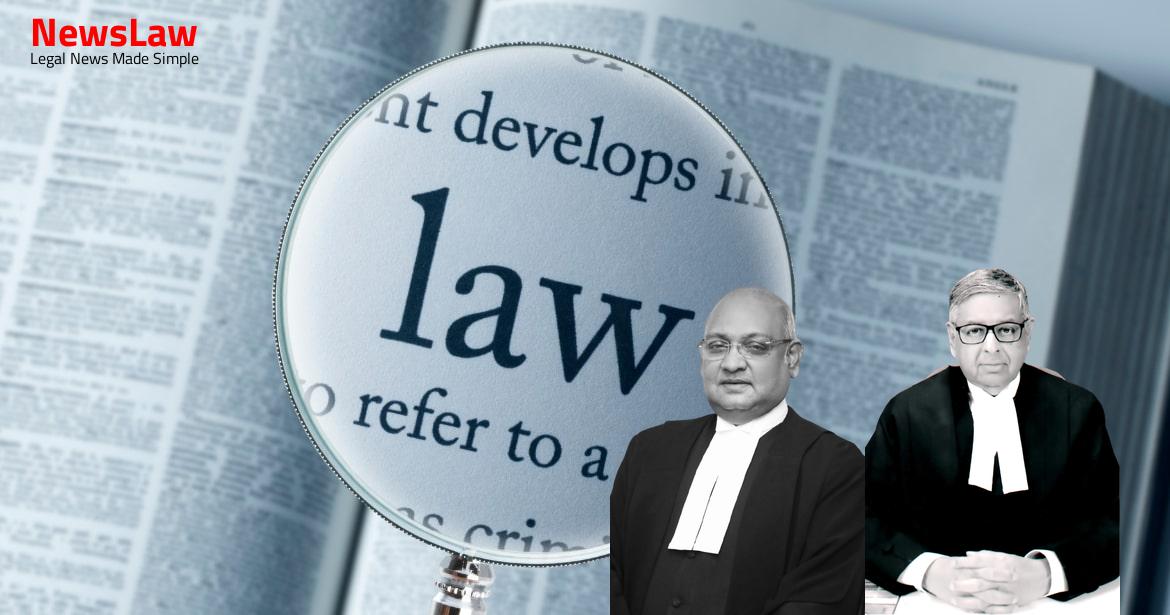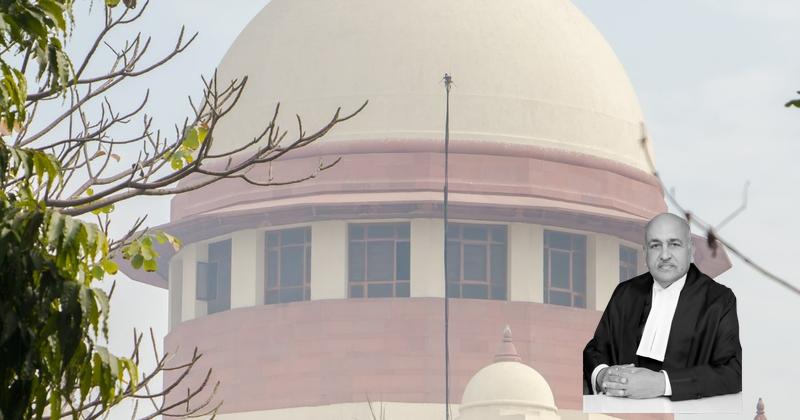Explore a detailed legal analysis focusing on the examination of alleged multiple agreements in a property sale case. The court’s emphasis on direct evidence over circumstantial evidence sheds light on the importance of robust legal provisions. Discover the implications of the court’s ruling on the admissibility of vague responses in questionnaires and the requirement for specific performance in agreements. Stay informed about the complexities of contract law and consumer protection in this intriguing case.
Facts
- Complaint Case No. 112 of 2013 involved a total sale consideration of Rs. 7,00,000, with a payment of Rs. 4,92,000 made by the complainants.
- Complaint Case No. 111 of 2013 had a total sale consideration of Rs. 9,00,000, and a payment of Rs. 5,79,000 was made.
- There were two separate agreements for sale, one for Rs. 7,00,000 and another for Rs. 9,00,000, totaling Rs. 16,00,000.
- The appellant alleged two agreements of Rs. 7,00,000 each, resulting in a total sale consideration of Rs. 14,00,000 in relation to Complaint Case No. 112 of 2013.
- The complainants in both cases filed complaints against the appellant and respondent No 3 for not executing and registering the Deed of Conveyance for the property despite receiving substantial sums of money.
- The National Commission set aside the order of the State Commission and restored the order of the District Forum with modifications.
- The appellant was held entitled to receive the amount of sale consideration from the complainants with interest at the rate of 10% per annum from the date of filing of the complaint till actual payment.
- The appellant’s review applications were rejected for being devoid of substance.
- The appellant was unable to produce the alleged second agreement in Complaint Case No. 111 of 2013.
- In Complaint Case No. 112 of 2013, two agreements for Rs. 7,00,000/- each were filed, both of the same date with different stamp papers, and the corrections in the agreements were scrutinized by the National Commission.
- The State Commission dismissed both complaint cases based on different observations than the National Commission.
- The National Commission disagreed with the State Commission’s findings, especially in terms of the existence of two agreements for the same property between the same parties.
- The National Commission emphasized that direct evidence and legal provisions hold more weight than circumstantial evidence in such cases.
Also Read: Ensuring Maintenance Rights: Court’s Legal Analysis
Arguments
- Learned senior counsel for the appellant referred to Section 24A of the Consumer Protection Act, 1986, arguing that the complaint should have been filed within two years from the date of accrual of cause of action.
- Counsel highlighted that records material to the case were not called upon, leading to the opinion that an adverse inference should have been drawn per Section 114 of the Evidence Act.
- The appellant contended that the existence of two separate agreements was a bona fide defense, supported by the State Commission’s findings, which the National Commission failed to acknowledge.
- Reference was made to a questionnaire served on the complainants, emphasizing the importance of factors like registration of the Deed of Conveyance within 90 days of the agreement.
- The appellant argued that the relief sought in the complaint resembled specific performance of an agreement for sale, necessitating compliance with personal bars per Section 16 of the Specific Relief Act, 1963.
- The appellant also contended that interest should have been awarded from the date the amount was due, not from the date of the complaint, and sought a modification of this aspect of the impugned order.
- The learned counsel for the respondents supported the judgment and order passed by the National Commission.
- The counsel rejected the suggestions of the existence of two agreements in each case.
- The National Commission rightly rejected the baseless claims of multiple agreements.
- The counsel argued that no adverse inference should be drawn as the complainants did not withhold any evidence.
- The counsel highlighted that a vague answer to an interrogatory should not lead to an adverse inference when the proposition of two agreements is unfounded.
Also Read: Legal Analysis: High Court’s Critique of Authority Actions
Analysis
- The vague question in the questionnaire about calling for records from the office and bank does not lead to any adverse inference since the records were not in the complainant’s possession.
- The sale price shown in the bank or government department does not imply the existence of any other agreement beyond the one disclosed in the main contract.
- Legally, there cannot be two agreements to sell between the same parties for the same property.
- The State Commission erred in its reliance on certain documents to support the existence of two separate agreements.
- The difference in sale consideration amounts shown to the Bank and in the agreement does not imply the existence of multiple agreements.
- The failure to execute the Deed of Conveyance despite receiving notice triggered the cause of action for the complaint.
- The complaints were filed well within the limitation period specified by the Act of 1986.
- The appellant’s claim of two separate agreements was deemed baseless and unsubstantiated.
- The circumstantial evidence cannot override direct evidence when available.
- No substantial performance was required from the complainants to fulfill their part of the contract.
- The suggestion of two agreements is found to have no merit based on the evidence presented.
- The State Commission’s approach to the case was deemed incorrect, and the National Commission’s decision to disapprove their orders was justified.
- Case does not justify drawing adverse inference.
- Questioning permissibility of certain questions in the questionnaire based on the Code of Civil Procedure.
- No substance in the alternative submission for allowing interest from 90 days after the agreement.
- Appellant received a significant part of the sale consideration but did not fulfill contractual obligations.
- Interest allowed by National Commission deemed excessive by the court.
- The complainants did not challenge the part of the order allowing interest at 10% per annum from the filing of the complaint.
Also Read: Analyzing Evidentiary Value in Criminal Conviction Case
Decision
- Appeals were entertained on 26.08.2019 and 23.09.2019 with interim relief in favor of the appellant.
- Appeals are required to be dismissed as they have only delayed the execution of the Deed of Conveyance in favor of the respondents.
- Appellant deserves to be saddled with costs for unnecessary litigation and delay.
- Appeals are dismissed with costs quantified at Rs. 50,000/- each.
- All pending applications also stand disposed of.
Case Title: BHARATI BHATTACHARJEE Vs. QUAZI MD. MAKSUDUZZAMAN (2022 INSC 334)
Case Number: C.A. No.-002382-002383 / 2022



